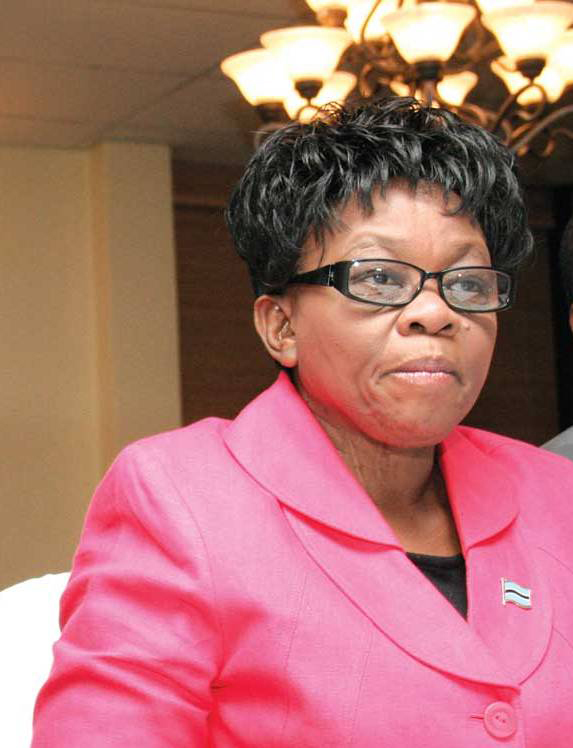
Botswana is committed to empowering women and achieving gender equality in line with the UN Millennium Development Goals. Gladys Kokorwe, Speaker of Parliament and one of Botswana’s most prominent female leaders, explains, “Women hold many leadership positions in Botswana today, including as CEOs. The Attorney General, the Governor of the Bank of Botswana and the Speaker of Parliament are all women.”
Many challenges remain, however. Only four women have top political positions in Botswana, and Gladys Kokorwe notes that socialization is the main reason. She says, “A female candidate, either for parliament or council, is not viewed very positively. This needs to be changed through education and a review of laws. When I first stood as a member of parliament in 1994, women raised the most objections to a female MP. It takes a lot of education to motivate women to make their voices count.”
Gladys Kokorwe entered civil service in 1972, studied at the University of Connecticut, became an MP in 1994 and then served as assistant Minister of Local Government, Deputy Speaker, and Minister of Youth, Sports and Culture before retiring from politics in 2009. She was then appointed Botswana’s Ambassador to Zimbabwe and later became Speaker. She is Botswana’s only MP to draft a bill voted into law; she is responsible for Botswana’s law on domestic violence, which is now an Act.
Promoting women in business
In addition to entering public service like Gladys Kokorwe, women are playing an increasingly important role in Botswana’s business sector as a result of government programmes like the Financial Assistance Policy, which gave women the financial support they need to start a business. Companies in many sectors in Botswana are now headed by women.
In its drive to achieve gender equality, the government has placed a high priority on education and now more girls than boys attend Botswana’s primary schools. Some girls leave school early, however, because of pregnancy. The government has launched information campaigns to fight teenage pregnancy and is encouraging families to educate their daughters about this issue. As Gladys Kokorwe points out, “The task should not be the government’s alone; parents must talk to their children.”
In spite of the challenges, Gladys Kokorwe is very confident about the future of women in Botswana. She says, “Women make up 42% of senior posts in public-service jobs and the government is aiming for 50%. Women also hold 46% of NGO senior jobs and 27% in parastatals. We are getting there. I can see light at the end of the tunnel.”





